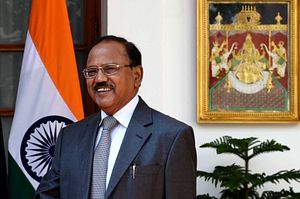The much-discussed recent terror strike at the Indian Air Force base at Pathankot, in the northern state of Punjab, has once again revived the debate on India’s counter-terror policy and competency. India’s response to a terrorist event follows a predictable pattern: The government pledges to bring the perpetrators to justice while the opposition denounces the government’s counterterrorism policy without offering any constructive solutions itself. Meanwhile, media coverage surges for a few days, but soon reverts back to discussions about Bollywood stars’ latest foibles.
India faces a structural problem given its location in one of the world’s most dangerous neighborhoods – South Asia – which is now the epicenter of Islamist radicalism. India’s neighbors harbor terrorist networks and use them as instruments of state policy. The tribal areas along the Pakistan-Afghanistan border, which have long been outside the realm of effective control, have become a breeding ground for Islamist radicals. And now the rise of the Islamic State is rapidly changing the dimensions of global terror.
India began dealing with the threat of terrorism long before it reached Western shores. The terror saga in the Indian state of Jammu and Kashmir is more than three decades old. But until September 11, the West viewed the Kashmir problem through the lens of India’s inability to improve its human rights record. The threat spiked in the early 1990s; Mumbai witnessed multiple terror strikes in 1993, and then, in November 2008, jihadists, aided and abetted by Pakistan’s Directorate for Inter-Services Intelligence (ISI), openly confronted the might of the Indian state under the full glare of the global media. In the wake of the November 2008 terrorist attacks in Mumbai, the Indian government took some initial steps toward a more robust counterterrorism policy. But even since then, deadly attacks on high value targets in India have continued.
From left-wing extremism to right-wing religious fundamentalism, the Indian State continues to face multiple challenges that threaten to derail the story of a rising India. India remains a strong society with a weak state, unable to harness its national power for national purpose. Despite perfunctory denunciations across the political spectrum, no consensus exists on how best to fight terrorism and extremism. Vote-bank politics have created an environment in which political and religious polarization has been so complete as to render effective action against terrorism impossible.
India had long claimed to be detached from Al Qaeda or any international terror plot – even though it has the second largest Muslim population in the world. This of course has turned out to be false: every major Islamist urban terror cell in the country since 1993 has seen a preponderance of Indian nationals. India is fast emerging both as a target and a recruitment base for organizations like Al Qaeda and the Islamic State, and attacks are being carried out with impunity by home-grown jihadist groups, trained and aided by organizations in neighboring Pakistan and Bangladesh.
Institutionally, India remains a poor performer with no lessons learned despite numerous tragedies. India’s intelligence coordination and assessment apparatus is not suited to the changing nature of the terrorist threat facing the nation. Despite the horrendous attacks on Mumbai in November 2008, it took the government nearly three years to approve the proposal for a National Intelligence Grid, a facility to improve coordination among government agencies to fight terrorism. The other major proposal – to create a National Center for Counterterrorism (NCTC) – is yet to become fully functional. The government did set up the National Investigation Agency (NIA) to improve intelligence-gathering and sharing but it remains underfunded. Despite the creation of the NIA, modeled on the U.S. Federal Bureau of Investigation (FBI), none of the terror investigations in recent years have yet reached their logical conclusion.
Rather than improving grassroots capabilities to effectively counter terrorism, the government has gone for grand initiatives such as the NIA and the NCTC. Police modernization is lagging; the police forces, the frontline agencies, in dealing with the threat of terrorism, remain underfunded and ill-trained.
National security issues should transcend politics but the lack of civil dialogue among political parties in India is an abomination. The nation needs a political environment where political parties can see beyond their immediate electoral gains and losses. Terrorist organizations appear to be able to strike at will, demoralizing an entire nation even as the government continues to rely on symbolism to deal with terrorism. In this day and age, no government can provide its citizens with a foolproof guarantee against terrorism. But in India, citizens continue to suffer around 700 terror attacks every year without any accountability. This will have to change if India wants to be taken seriously as a global power to be reckoned with.
In the wake of the Pathankot attack, the debate once again is about whether India should talk to Pakistan or not. This is a puerile debate and has little bearing on India’s management of terrorism. The Modi government seems to have resolved to keep the dialogue with Pakistan on track. This is sensible and deepening India’s engagement with the civilian administration in Pakistan can only help. There seems to be a recognition at the highest echelons of the Indian government that dialogue can continue with the Pakistani civilian establishment, but with a clear deadline and focus on outcomes. It is for this reason that Modi government’s reaction seems to have muted against Pakistan.
The onus is now on the Nawaz Sharif government to demonstrate that it is willing and capable of delivering on Indian demands. If it turns out that the Sharif government is really powerless (which is most likely the case), then India is giving ample indications that it will retaliate at a time and place of its own choosing. The focus should be on building credible military options for retaliation so that a robust couter-terror policy can be put in place.

































